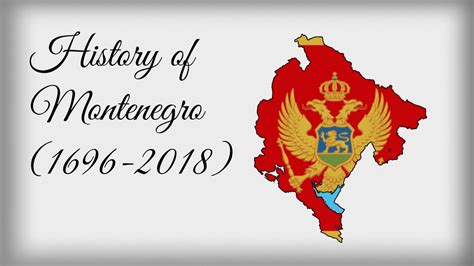Explore the birth, mythology, golden age, wars, and legacy of ancient Greece in this comprehensive blog post. Learn about the civilization that shaped Western culture.
Ancient Greece: Birth of a Civilization
Contents
Ancient Greece holds a special place in history as the birthplace of Western civilization. The era of Ancient Greece (from 800 BC to 500 BC) was characterized by significant progress in art, philosophy, science, and politics. This period laid the foundation for many of the ideas and innovations that are still valued today.
One of the defining features of Ancient Greece was its system of city-states, each with its own government, laws, and customs. These city-states, such as Athens and Sparta, were the centers of political and cultural life. The concept of democracy also originated in Ancient Greece, where citizens had the right to participate in decision-making processes.
Art and architecture flourished during this time, with the construction of iconic structures such as the Parthenon and the creation of timeless sculptures like the Venus de Milo. The influence of Ancient Greek art and philosophy can still be seen in modern society, demonstrating the enduring impact of this remarkable civilization.
Despite the passage of centuries, the legacy of Ancient Greece continues to shape the world in countless ways. The innovative ideas and achievements of this period have left an indelible mark on human history, making Ancient Greece a fascinating subject of study and admiration.
Greek Mythology: Gods and Legends
Greek mythology is an integral part of the ancient Greek culture and has had a significant influence on Western civilization. The stories of gods and heroes from Greek mythology have captivated people for centuries, and continue to be a source of inspiration for art, literature, and popular culture.
In Greek mythology, the gods and goddesses played a central role in the lives of the ancient Greeks. The twelve Olympian gods, including Zeus, Hera, Apollo, Athena, and others, were believed to have control over various aspects of the natural world and human existence. These gods were not just distant figures, but were often depicted as having human-like qualities and engaging in interactions with mortals.
The legends and myths of Greek mythology also featured a diverse cast of heroes, monsters, and creatures. Stories of heroes such as Heracles, Perseus, and Theseus undertaking epic quests and facing formidable foes have become timeless tales of courage, wit, and perseverance. Meanwhile, the myths of creatures like the Minotaur and the Medusa have continued to capture the imagination of people around the world.
Furthermore, the influence of Greek mythology can be seen in various forms of art and literature throughout history. From ancient Greek sculptures and pottery to Renaissance paintings and modern-day novels and films, the themes and characters from Greek mythology have been a rich source of inspiration for artists and storytellers across different cultures and time periods.
In conclusion, the world of Greek mythology is a fascinating and complex tapestry of gods, legends, and ancient beliefs that continue to resonate with people today. The stories of the Greek gods and heroes have not only shaped the cultural identity of ancient Greece, but also left a lasting legacy that continues to be celebrated and explored in the modern world.
Golden Age of Athens: A Cultural Renaissance
The Golden Age of Athens was a period of great cultural and intellectual achievements in the ancient Greek city-state of Athens. This era, which lasted from the early 5th to late 4th centuries BC, marked a high point in Athenian civilization, and it had a lasting impact on the development of Western culture.
During this time, Athens witnessed a flourishing of arts, literature, philosophy, and architecture. The city became the center of intellectual and artistic activity, attracting renowned thinkers, poets, and artists from all over the Mediterranean world. It was a time of unprecedented creativity and innovation, and it laid the foundation for many of the ideas and concepts that would shape the future of Western civilization.
One of the most significant developments of the Golden Age was the emergence of dramatic and comedic theater. Playwrights like Aeschylus, Sophocles, and Euripides produced timeless works that continue to be performed and studied to this day. The theater became a vital part of Athenian culture, serving as a platform for the exploration of ethical, political, and social issues.
In addition to theater, the Golden Age also saw the construction of magnificent architectural masterpieces, including the Parthenon, a temple dedicated to the goddess Athena. The Parthenon remains an enduring symbol of the artistic and architectural achievements of ancient Athens and has inspired countless imitations and reinterpretations throughout history.
Furthermore, the period was a time of great philosophical and intellectual ferment, with the teachings of scholars like Socrates, Plato, and Aristotle shaping the foundations of Western philosophy. Their ideas and inquiries into the nature of reality, ethics, and politics continue to influence contemporary philosophical discourse.
The Peloponnesian War: Conflict and Consequences
The Peloponnesian War was a significant conflict in ancient Greek history, fought between Athens and Sparta and their respective allies. It was a long and brutal war that resulted in widespread destruction and left a lasting impact on the Greek world. The war was essentially a power struggle between the two leading city-states, as Athens sought to expand its empire and dominance, while Sparta aimed to maintain its traditional Greek values and way of life.
The consequences of the Peloponnesian War were far-reaching and profound. The prolonged conflict led to a decline in the power and influence of both Athens and Sparta, as well as the devastation of the Greek economy and society at large. The war also weakened the Greek city-states as a whole, leaving them vulnerable to outside threats. The aftermath of the war saw a shift in regional power dynamics and the rise of Macedon as the dominant force in Greece.
Another major consequence of the Peloponnesian War was the deep-seated sense of mistrust and animosity that emerged between the Greek city-states. The war created deep divisions and lasting resentments, which ultimately paved the way for further conflicts and struggles for dominance in the years to come. The war also highlighted the inherent flaws and vulnerabilities of the Greek political and social systems, which contributed to the eventual downfall of Greek civilization.
In conclusion, the Peloponnesian War had a profound and lasting impact on the history of ancient Greece. It changed the political and social landscape of the Greek world, and its consequences reverberated for generations to come. The war served as a turning point in Greek history, marking the beginning of the end for the once-mighty Greek city-states and paving the way for the rise of new powers in the ancient world.
Hellenistic Greece: Legacy of Alexander the Great
After the death of Alexander the Great in 323 BC, his vast empire was divided among his generals, marking the beginning of the Hellenistic period. Greece underwent a significant transformation during this time, as the influence of Greek culture spread throughout the Mediterranean and beyond. The legacy of Alexander the Great had a lasting impact on the art, literature, philosophy, and science of the ancient world.
The Hellenistic period saw the emergence of new cities and urban centers, known as polis, which became hubs of commerce, learning, and cultural exchange. These cities were characterized by their impressive architecture, including grand theaters, gymnasiums, and public squares, showcasing the wealth and prosperity of the Hellenistic world. The city of Alexandria, founded by Alexander the Great himself, became a center of learning and scholarship, boasting the famous Library of Alexandria, one of the largest and most significant libraries of the ancient world.
During the Hellenistic era, Greek art and architecture flourished, blending elements of Greek traditions with influences from Asia and Egypt. This fusion of styles resulted in the creation of stunning sculptures, intricate mosaics, and ornate buildings, showcasing the artistic achievements of the period. The Hellenistic world also witnessed advancements in science and technology, with scholars making significant contributions to fields such as astronomy, mathematics, and medicine.
One of the most enduring legacies of the Hellenistic period was the spread of Greek philosophy and literature. The works of renowned philosophers such as Plato, Aristotle, and Epicurus continued to be studied and celebrated, influencing the intellectual and cultural developments of the era. Additionally, the translation of Greek texts into other languages allowed for the preservation and dissemination of Greek ideas and knowledge, shaping the intellectual landscape of the ancient world for centuries to come.
In conclusion, the legacy of Alexander the Great and the Hellenistic period left an indelible mark on the history of Greece and the wider ancient world. The cultural, artistic, and intellectual achievements of this era continue to be celebrated and studied, underscoring the enduring impact of Hellenistic Greece.













